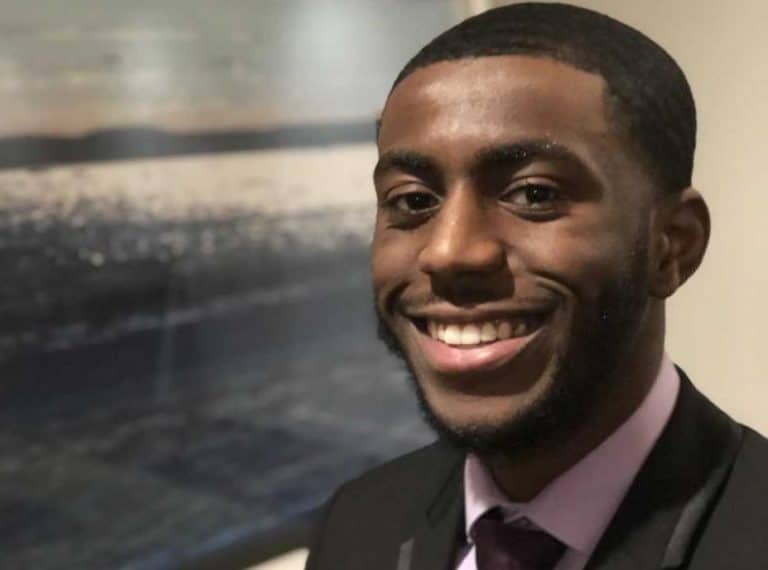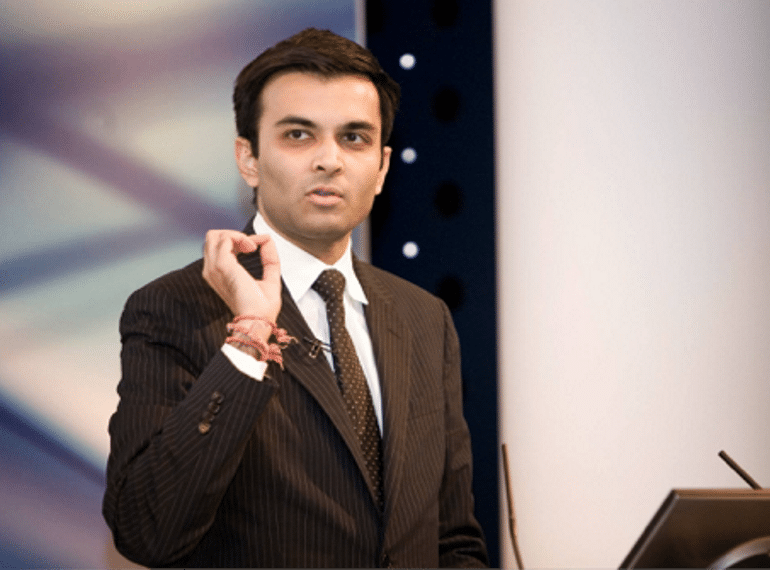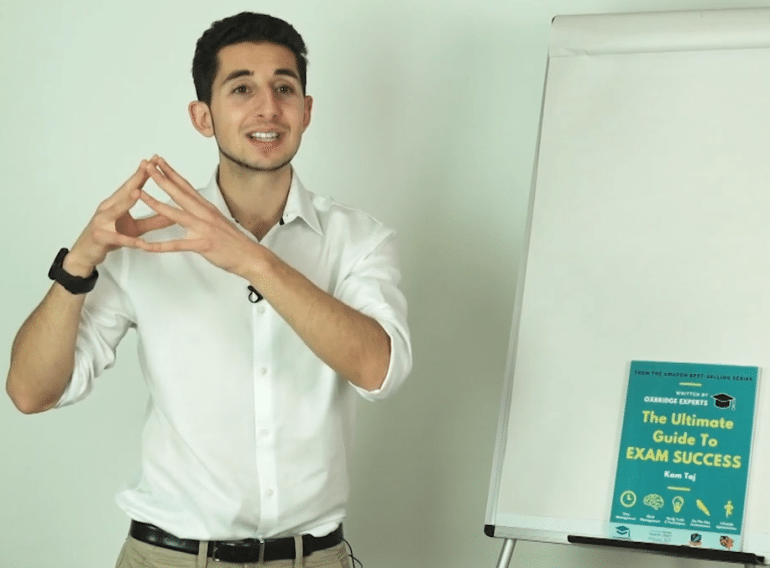
Sixty-five senior QE boys have enrolled on a coaching programme run by alumnus Kam Taj.
Kam (Kamran Tajbaksh, OE 2004–2011), a performance coach, inspirational speaker and author, will help the pupils through an online course supported by more than 100 videos and activities.
After taking a first in the Manufacturing Engineering tripos at Churchill College, Cambridge, Kam secured a job as a management consultant with a global firm. However, he had begun doing performance coaching work while still at university, and in 2016 left the consultancy world to concentrate fully on coaching and motivational speaking.
Thanking Headmaster Neil Enright and Assistant Head Michael Feven (Pupil Development) for their support, Kam said: “QE is consistently named as one of the best schools in the UK, and I’m confident that this course will be an asset to the students’ academic and personal development, especially during these uncertain times.”
Kam is, in fact, a regular visitor to QE. In recent years, he has led a motivational skills workshop for Year 12 boys and helps pupils with their Oxbridge preparations.
Mr Enright said: “I am pleased that so many of our boys are taking advantage of Kam’s expertise by signing up for his Exam Success Academy online programme. Kam is both an Elizabethan and a very gifted performance coach, and although there are, of course, no public examinations this year, I am sure that the principles the boys will learn on the course will stand them in good stead for the future.”
The programme focuses on eight principles: time management; mindset management; study tools & techniques; on-the-day performance; academic & personal support groups; sleep optimisation; physical activity & movement, and nutrition & hydration.
Kam had been due to visit the School last month to talk to Year 12 on Student Life at Oxbridge (discussing topics ranging from choosing a college, the academic intensity of Oxbridge, student life beyond academic matters, and common traps that students fall into in their first year), but the visit had to be shelved because of the Covid-19 restrictions.
It would have followed three workshops held earlier in the Spring Term and run by Mr Feven, as well as Head of Year 12 Helen Davies and Head of English Robert Hyland (both Oxford graduates), that were focused on providing Year 12 boys with advice on applying to Oxbridge. The workshops take place each year, although Kam’s talk was to have been a new addition to this programme.

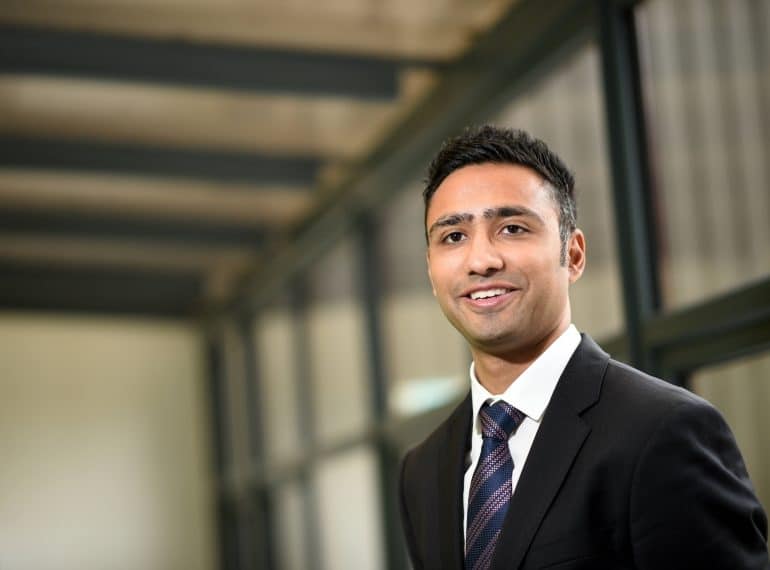
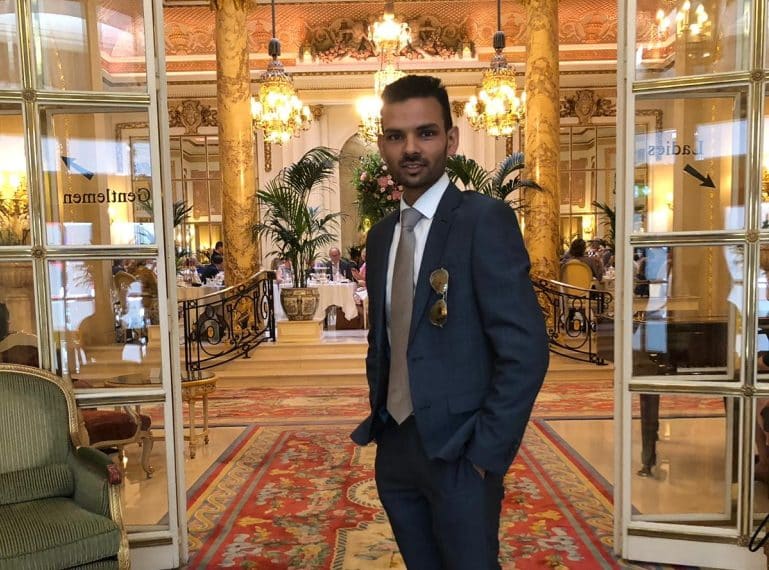
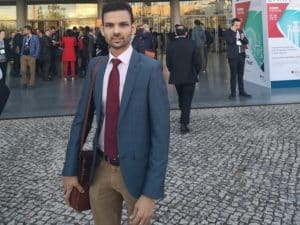 Now a Clinical Research Fellow and a cardiology specialist registrar at the National Heart and Lung Institute based at Imperial College, Kiran (OE 2000–2007) is a member of the Royal College of Physicians. The winner of a string of prizes and awards for his work and research, he graduated from King’s College London with a First in 2010 and then from the college’s medical school with triple distinction three years later.
Now a Clinical Research Fellow and a cardiology specialist registrar at the National Heart and Lung Institute based at Imperial College, Kiran (OE 2000–2007) is a member of the Royal College of Physicians. The winner of a string of prizes and awards for his work and research, he graduated from King’s College London with a First in 2010 and then from the college’s medical school with triple distinction three years later.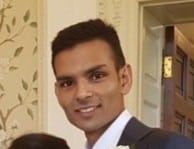 “Upon my return to the UK, I was surprised that my short undergraduate project at Harvard was short-listed for the Young Investigator Award at the London Cardiovascular Society, and found myself competing against doctoral candidates with considerably more experience than me.” He was named runner-up for this award.
“Upon my return to the UK, I was surprised that my short undergraduate project at Harvard was short-listed for the Young Investigator Award at the London Cardiovascular Society, and found myself competing against doctoral candidates with considerably more experience than me.” He was named runner-up for this award.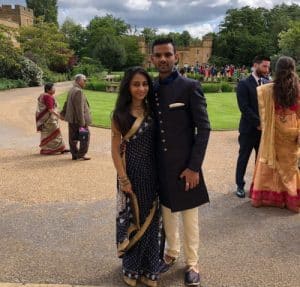 “The last three years have been particularly busy; in 2017 I passed exams to gain membership of the Royal College of Physicians, applied for and started specialist training in cardiology in north west London, and married my wife, Jaime.
“The last three years have been particularly busy; in 2017 I passed exams to gain membership of the Royal College of Physicians, applied for and started specialist training in cardiology in north west London, and married my wife, Jaime.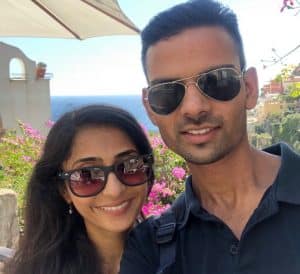 Kiran continues to do ad hoc shifts at Northwick Park Hospital. He lives in Stanmore, where he and his wife bought a house last year.
Kiran continues to do ad hoc shifts at Northwick Park Hospital. He lives in Stanmore, where he and his wife bought a house last year.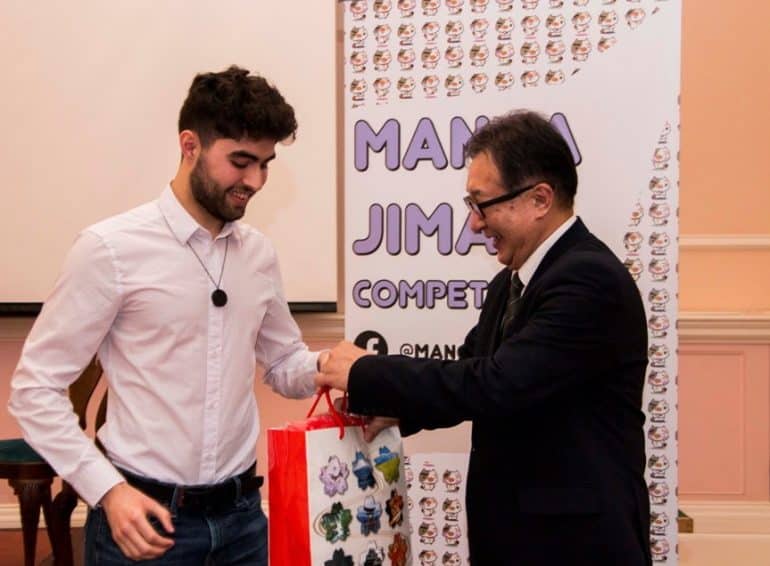
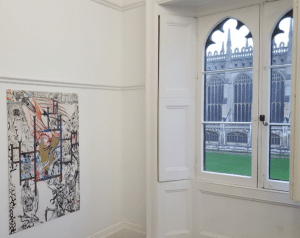 Danny’s work was displayed in the Art rooms at King’s, overlooking the famous chapel, in an exhibition he entitled Full House.
Danny’s work was displayed in the Art rooms at King’s, overlooking the famous chapel, in an exhibition he entitled Full House.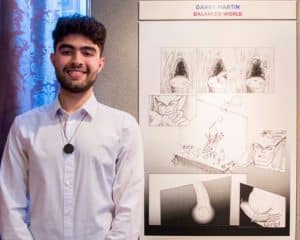 Danny describes it as “a unique take on the creation story where two God-like characters that represent nature’s opposites work together to create a world from scratch”.
Danny describes it as “a unique take on the creation story where two God-like characters that represent nature’s opposites work together to create a world from scratch”.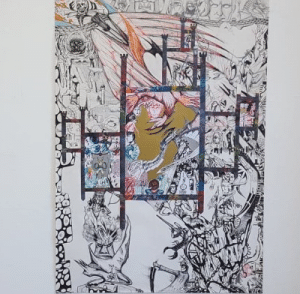 “I present to you Full House, one man’s fantasia that, like real life, has not enough facts, too many villains and a ubiquitous sense of the unknowing.
“I present to you Full House, one man’s fantasia that, like real life, has not enough facts, too many villains and a ubiquitous sense of the unknowing.